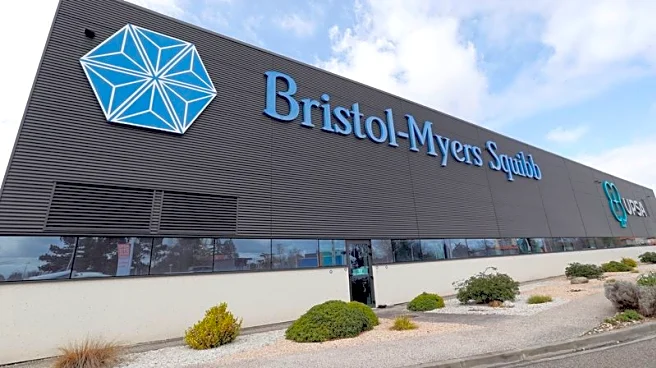By Michael Erman
(Reuters) -Bristol Myers Squibb beat Wall Street estimates for third-quarter revenue on Thursday, as strong growth of its cancer immunotherapy and blood thinner Eliquis helped the drugmaker
overcome a hit from generic competition for several older drugs.
Shares of the company were up 2% in premarket trading.
Bristol Myers also raised its full-year revenue forecast, reflecting optimism that its portfolio of recently launched drugs will plug a multibillion-dollar revenue gap from patent expirations that open several best-selling drugs to competition. CEO Christopher Boerner has also aggressively pursued acquisitions and partnerships to fill Bristol Myers' pipeline.
For the third quarter, Bristol Myers posted revenue of $12.22 billion, beating analysts' average estimate of $11.8 billion, according to data compiled by LSEG.
On an adjusted basis, the company earned $1.63 per share, compared with estimates of $1.51 per share.
Sales of its top cancer immunotherapy, Opdivo, rose 7% to $2.53 billion, and the newer subcutaneously injected version of the drug added another $67 million. That compares with analyst expectations of $2.2 billion.
Bristol Myers Chief Commercialization Officer Adam Lenkowsky said in an interview the company still expects to convert 30% to 40% of its Opdivo sales to the subcutaneous version before the drug's patent expires.
Sales of blood thinner Eliquis, which Bristol Myers shares with Pfizer, jumped 25% to $3.75 billion, compared with Wall Street estimates of $3.4 billion.
Revenue from the company's "growth portfolio," which includes Opdivo and new products like heart drug Camzyos, rose 18% to $6.9 billion, helping to offset a 59% plunge in sales of blood cancer treatment Revlimid, its one-time top-selling drug, to $575 million.
Bristol Myers now expects full-year earnings in the range of $47.5 billion to $48 billion, up from its previous forecast of $46.5 billion to $47.5 billion.
Bristol has been contending with a steep revenue decline from Revlimid, which raked in nearly $13 billion in 2021 but only $5.8 billion last year due to generic competition. Some of its other cancer drugs such as Pomalyst, Sprycel and Abraxane are contending with the same issue.
The company is also under pressure from the Trump administration to lower drug prices. President Donald Trump has unveiled deals in recent weeks with Pfizer Inc and UK-based drugmaker AstraZeneca under which the companies will sell some medicines at a discount to Medicaid, the government health plan for low-income people, in exchange for tariff relief.
"We continue to engage with the administration," Lenkowsky said.
(Reporting by Michael Erman; Additional reporting by Puyaan Singh in Bengaluru; Editing by Leslie Adler and Krishna Chandra Eluri)










